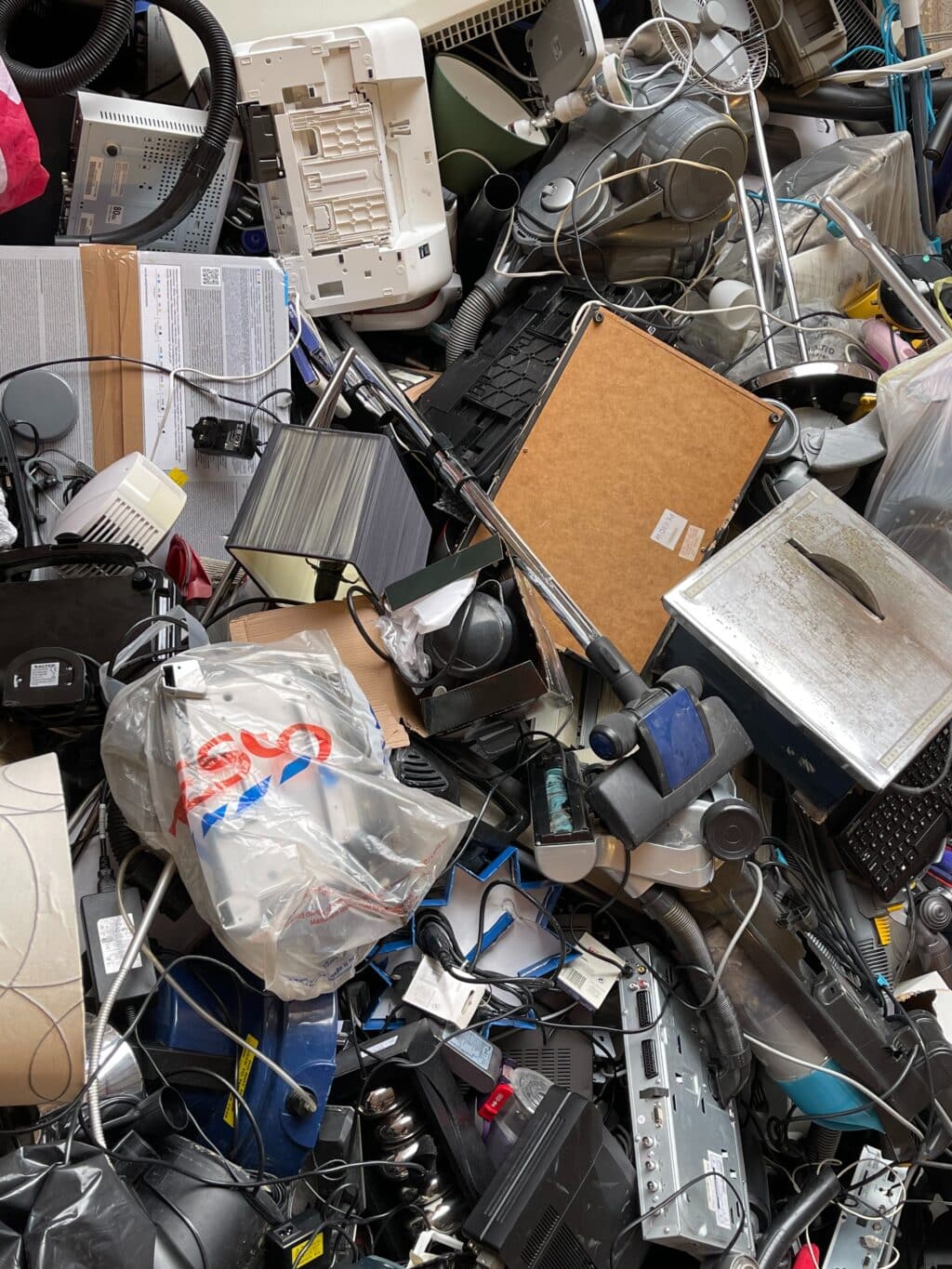Waste management is emerging as a global challenge in recent years. Some of the common reasons that have led to an increase in waste generation include a rapid increase in population, urbanization, and an unsustainable pattern of consumption.
As per a report, global waste generation is expected to reach 3.4 billion metric tons by 2050. And if this continues this will have an impact on the environment, public health, and the overall quality of life.
Hence, effective waste management is essential for mitigating environmental pollution, conserving resources, and promoting sustainable development.
Fortunately, technology has evolved into a potent engine for reshaping waste management’s future. In this blog, we will discuss the traditional ways of waste management and how the emergence of technology is reshaping it.
IMAGE: UNSPLASH
Traditional Waste Management Methods
Traditional waste management has been the go-to solution for handling waste for a long time now. However, technology plays a vital role in innovative waste management processes that promotes resource utilization and attains sustainability.
Let us now check out some of the traditional methods of waste management in detail:
1. Landfills
It has been one of the common disposal options however poses serious environmental issues. Landfills are reaching their capacity limits, due to the increase in the amount of waste generated and the decrease in the amount of land availability.
Not only this, but they also contribute to soil and water pollution along with serious health issues.
2. Incineration
It is a process that involves the burning of wastes for generating energy. Though it reduces the amount of waste generated, it also has some drawbacks. Incineration releases toxic gases and harmful particulate matter into the atmosphere.
This is the reason it is not one of the sustainable solutions for the management of waste.
3. Open Burning
It refers to the process of burning waste in open areas like backyards or open spaces. The burning of wastes in an open area releases toxic fumes on burning which lead to air pollution and also pose other health risks.
Therefore to protect human health and the environment, it is advisable to discourage open burning and promote sustainable waste management practices.
4. Dumping
Dumping is the unauthorized disposal of waste into rivers, vacant lands, or forests. Dumping can contaminate the soil, and water resources and also disturb the balance of the ecosystem causing environmental hazards.
So it is advisable to address this issue through public awareness campaigns or strict regulations to lower the effect of dumping on the environment.
This gives us a clear picture that the traditional methods of waste management are not enough to deal with the rising waste crisis. Going ahead, we will have a look at how technology is going to help us in paving the way for a more sustainable future.
Emergence Of Technology In Waste Management
Technology has emerged as a game-changer in the field of waste management. Several cutting-edge technologies portray the importance of technological innovation in addressing the global waste crisis.
- One such technology is Biodrying which involves the drying of organic wastes through biological processes. It accelerates the decomposition process through controlled temperature, airflow, and humidity. This process helps to reduce odors and stabilize the waste. It offers several advantages, including reduced waste volume, and enhanced biogas production potential.
- Additionally, Hydrothermal carbonization (HTC) is an advanced technology for waste treatment. This process converts the organic waste into a carbon-rich product called hydrochar. HTC provides several environmental benefits, such as reduced greenhouse gas emissions, and increased resource recovery.
- A Waste autoclave is a technology that involves the treatment of biomedical wastes. It ensures that the harmful microorganisms are destroyed to avoid the spreading of any infectious disease. This technology is useful in laboratories and healthcare facilities to protect public health and the environment.
These technological advancements in waste management are transforming waste management practices and also enhancing sustainability. Let us now learn about the challenges and considerations for future development.
Challenges And Considerations For Future Development
The implementation of advanced technologies for waste management comes with several challenges, including.
1. Cost: the implementation of technologies for waste management involves several costs like upfront costs, installation charges, and ongoing maintenance expenses overall, cost is one of the considerable challenges for the global adoption of technology for waste management.
2. Public Acceptance: with the evolution of waste management technologies people may have resistance to any type of disruptions, risks, or changes in the traditional ways of waste management hence, it becomes important to raise awareness and address public concerns for successful implementation.
3 Infrastructure Requirements: sometimes accepting new technologies for waste management requires modifications in the infrastructure for example- establishing waste sorting facilities or waste-to-energy plants may lead to logistical challenges in terms of resources or space.
These were some of the challenges but what are the considerations to be taken for future development, let us find them.
1. Sustainability: the developing waste management technologies must prioritize sustainable practices like the reduction of waste, utilization of resources, and reducing environmental impact this is the reason technology must be aligned with economic principles for a sustainable approach to waste management.
2. Ethical Concerns: ethical consideration becomes increasingly important with the advancement of technology to ensure responsible and ethical waste management practices, issues like e-waste management and data privacy should be addressed.
3. Scalability and Adaptability: with the requirement of waste management technologies across regions and communities, it must be scalable to adopt different areas of operation additionally, technologies should also be adaptable to various waste management systems so waste management challenges can be addressed on a global scale.
By addressing the above challenges, we can work towards an environmentally conscious and socially responsible future.
Conclusion
To sum up, technology is playing a crucial role in shaping the future of waste management. It has the potential to revolutionize the traditional ways of waste management and offer innovative solutions to address this global crisis.
By utilizing the power of technology, we can optimize waste collection, recycling, and resource recovery processes. Not only this, but we can also create a safe future where waste is minimized, resources are utilized properly, and the environment is also not impacted.
IMAGE: UNSPLASH
If you are interested in even more technology-related articles and information from us here at Bit Rebels, then we have a lot to choose from.


COMMENTS